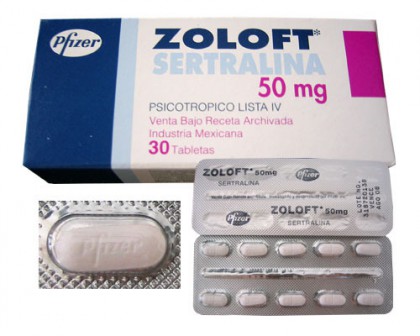Top Class Actions’s website and social media posts use affiliate links. If you make a purchase using such links, we may receive a commission, but it will not result in any additional charges to you. Please review our Affiliate Link Disclosure for more information.

Plaintiff Laura Plumlee claims that for the past 22 years “Pfizer has engaged in a calculated campaign to mislead consumers and prescribing healthcare professionals about Zoloft’s ability to treat depression. Pfizer knew that Zoloft’s efficacy in treating depression was, at best, marginal and, at worst, nonexistent,” according to the class action lawsuit.
Plumlee says she took Zoloft for three years to treat her depression but it failed to help, even after increasing her dosage. Her class action lawsuit draws from controversial research on the placebo effect by Harvard Medical School psychologist Irving Kirsch, who analyzed efficacy data submitted to the FDA between 1987 and 1999 for six of the most popular SSRI antidepressants. Kirsch found that 75% to 80% of the response to these drugs was duplicated in placebo groups. Patients who expected to get better had perceived that they improved.
Zoloft and other antidepressants are particularly susceptible to the placebo effect, Plumlee says, because “unlike other ailments where objective measurements are obtainable through blood and tissue samples, there is no physiological test for determining whether a given antidepressant is working on a patient. Rather, researchers must rely exclusively on the subjective articulations of the patient concerning their depression.”
The Zoloft class action lawsuit also points out that as part of Pfizer’s new drug application for Zoloft in 1990, Pfizer submitted six placebo-controlled trials. Of those, four showed that Zoloft was no more effective than a placebo in treating depression. The other two indicated Zoloft had a slight positive impact on depression, but even these two studies “were severely flawed” by sampling-bias and design flaws, Plumlee says.
The FDA was apparently concerned about the outcome of the trials, but ultimately concluded that the two “successful” trials were “sufficient to meet the lax FDA efficacy requirements,” the Zoloft class action lawsuit states.
As if these allegations aren’t shocking enough, what’s interesting about this case is Pfizer’s reaction to it.
Pfizer, of course, defended its drug by arguing that the very fact that doctors and their patients have chosen Zoloft for over two decades confirms its safety and efficacy. Yet, on February 22, Pfizer notified the Judicial Panel on Multidistrict Litigation that it intended to file a motion to transfer the Zoloft placebo class action lawsuit into multidistrict litigation concerning Zoloft birth defects.
The Zoloft birth defect MDL is home to nearly 250 lawsuits filed by mothers who took Zoloft during pregnancy and claim the drug caused their babies to be born with congenital birth defects such as PPHN, heart abnormalities and other deformities.
Seeking to transfer a class action lawsuit that calls Zoloft a placebo appears to be thinly-veiled attempt to undermine allegations that Zoloft causes injuries such as birth defects.
Even before Pfizer could file its official motion for transfer, however, a clerk with the panel decided the California case was not suitable for transfer into the Pennsylvania MDL since Plumlee was not alleging personal injury or birth defects.
Pfizer defended its transfer request by stating it was simply trying to promote efficiency in the litigation by avoiding the possibility of inconsistent rulings from different courts. The company said it may still continue with its efforts to transfer the case.
The Zoloft Placebo Class Action Lawsuit case is Plumlee v. Pfizer, Case No. 13-cv-414-PSG, U.S. District Court for the Northern District of California, San Jose Division.
The Zoloft Birth Defect Lawsuit MDL is In Re: Zoloft (Sertraline Hydrochloride) Products Liability Litigation, No. 12-2342, U.S. District Court for the Eastern District of Pennsylvania.
If you took Zoloft or another SSRI antidepressant during pregnancy and believe it caused your child to suffer a birth defect, you may have a case to join the Zoloft MDL. Visit the Zoloft & SSRI Antidepressant Birth Defect Class Action Lawsuit Investigation for more details.
UPDATE: The Zoloft placebo class action lawsuit was dismissed on Feb. 21, 2014, due to statute of limitations problems, but the plaintiff will be allowed to refile.
All class action and lawsuit news updates are listed in the Lawsuit News section of Top Class Actions














